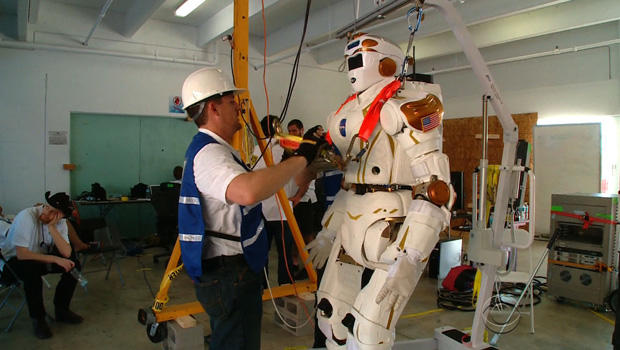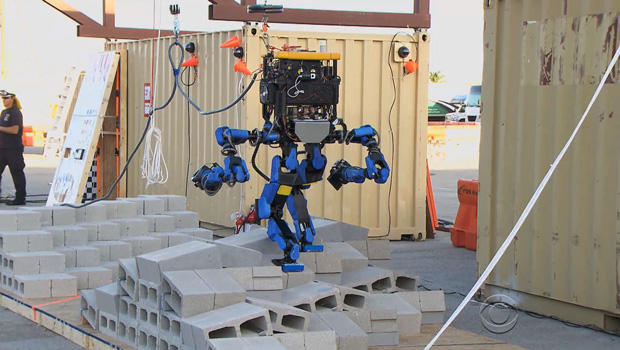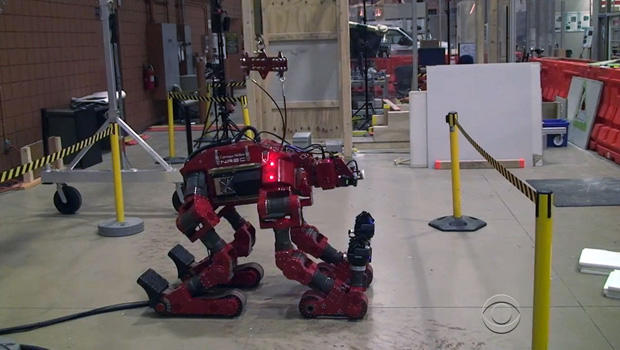Building robots to venture where man cannot
There's a high-tech
Olympics of sorts under way in Florida this weekend.
It is a robot versus robot competition. The idea is to develop a new generation of machines that both save lives of people in trouble and minimize risk to first responders.
At this Pentagon-sponsored
competition, 17 teams of scientists and engineers are testing robots -- to go
where man cannot go.
Gil Pratt is a program manager at the Pentagon's Defense Advanced Research Projects Agency, known as DARPA.
"We work with first responders to find out what kinds of tasks they would really like a robot to be able to do at a distance from them," Pratt said.
This event featuring real robots is one of the phases of DARPA's robotics challenge, an initiative that began as a response to the nuclear disaster in Fukushima, Japan, nearly three years ago.
"What if we had a robot that could go in there, working at a distance from the human being, and do more than just observe the situation?" Pratt asked.
The robots
here are not at that stage. Controlled by their human operators, they perform
various challenges -- driving a car, closing a valve, and walking over a
simulated rubble field.
Tony Stentz is the director of the National Robotics Center at Carnegie Mellon University. Stentz and his team designed and built "CHIMP" for this competition at a cost of $3.5 million.
The finals will be held next December. The winning team will be awarded a $2 million prize, and a chance to turn science fiction into science fact.


